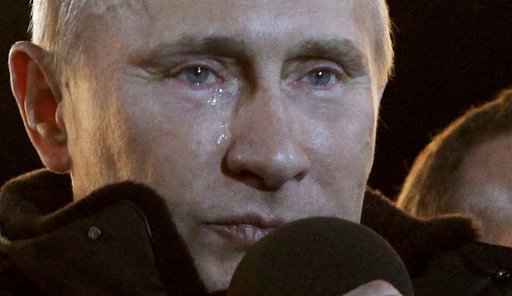‘Braindead, Legless Chickens’: A Response

There’s been some interesting responses to my post on our obligation to eat headless, legless chickens (aside from the vague namecalling and useless expressions of outrage and disgust. Something is wrong if my proposal for the animal not to suffer is what disgusts you more than the current industry’s practices). Here are my replies to two common themes I saw recurring.
It’s Better to Eat No Animals at All
For example, ‘Melissa’ said: “…We don’t need chicken for our ultimate well-being. Let’s place our efforts where they will yield the highest good, not do things just because we can.”
We are directing our efforts toward good by trying to reduce the suffering of creatures who currently live in a horrible state. No animals harmed at all, simply for producing our food, would perhaps be best. Animals are kept in horrific conditions and it’s our continual demand for meat that has created and continues to maintain the industry. Being vegetarian for me would amount to not participating at all in this industry, for this reason above all else: we should be doing all we can to reduce unnecessary suffering in the world.
If animals are not harmed in the creating of meat – a topic I’ll be dealing with later – then I see no reason it’s wrong to eat the meat. It’s not meat-eating itself that is harmful, since the meat is already there: it’s the suffering that currently occurs in battery-farms (and that created the meat).
And this is the mistake commenters made when they laid this charge against me. There’s a difference between (1) advancing arguments for, say, non-meat eating and (2) reducing the suffering of animals who currently and will end up in battery farms. It’s true that (1) implies (2), to a certain extent, but that’s not my issue. Despite the many vegetarians who do exist, this won’t stop the meat industry any time soon. And if we cannot stop the meat industry, we should at least consider what we can do to reduce the suffering within battery farms, which will occur no matter how much meat we individually do and do not eat (this assumes that most people won’t stop eating meat any time soon, which I think is a safe assumption).
Thus, the argument for vegetarianism is irrelevant to whether we should do something to reduce the suffering of the chickens who currently are and will be in the broiled meat industry. It’s worse if we just ignore them, surely? We don’t do anything for their plight by not eating them. Others will: so, until everyone changes his or her mind about eating from the broiled meat industry, we should still be concerned for the chickens involved. I think both vegetarians and non-vegetarians can agree that the idea of removing the locus of suffering for the chickens is the best thing we can do, if there’s no way to stop the industry completely and the chickens will be suffering in it.
We’re “Meant to” Eat Meat
For example, Chris Webb said (in a fairly convoluted comment but one which captures this idea):
“For all of the vegans out there. Your species didn’t get here eating just fruits and nuts. Also several systems in your body require cholesterol to build and function properly. And people who have high output occupations and lifestyles can’t maintain weight and muscle on vegan diets. Energy in. Energy out. It’s math. But if you basically sit all day and don’t need to move heavy objects. It’s all good. Because despite your ethics you would strangle that chicken with your bare hands if you were hungry enough. You can thank evolution for that.”
Several people have pulled the usual weird idea that somehow (1) because we have a specific set of teeth found in carnivores, we therefore ought to use them; or, (2) our ancestors survived because they ate meat, therefore, because we’re alive, we should eat meat, too. Or perhaps (3) there’s specific substances within meat that is impossible to get elsewhere or not eating meat means we’ll be unhealthy.
Only the last is false, whereas the previous two are half-truths. Just because we have a set of teeth, ligaments, organs and so on, biology does not dictate what we do with them completely. To say “nature” – whatever that is – dictates that we ought and ought not to use specific body-parts for specific things is no different to arbitrary and idiotic religious assertions that, for example, sex is only for procreation or marriage is only between a man and a woman. We go “against” this view of nature when we wear condoms; or take medication to combat “naturally” occurring diseases (like colds, flus and children); or, even when we wear clothes. I’m not sure where people are reading the instruction manual on the body written by nature, but I’d be interested to have a copy.
There’s no “meant” to. We are limited, I’d say, but not dictated to by what our biology reflects (using a minimal definition of biology to mean something like genetics, organs, bone, etc.).
We can’t “naturally” fly or “naturally” go faster than a cheetah; but we’ve created ways to do so, just as we’re unnaturally living longer through hygiene and medicine. Does anyone think we ought not to fly, because our feet are “meant to” be on the ground? Does anyone reasonably think we shouldn’t fight diseases because we’d be going against the “natural” course of things?
Anyone who thinks we’re supposed to eat meat because we have teeth that chew meat so well is, essentially, saying we should punch people in the face, because knuckles do that so well, too. If noses are only for smelling, I can’t be wearing these spectacles.
I think few can really take one second’s reflection on the idea of being dictated to by “nature”, see their own clothes, medication and online porn, and remain convinced by the validity of this idea. Nature is no more a dictator on our actions than our astrological signs.
I’ll be writing more on the amorality (notimmorality) of “nature” and “the Universe” soon.
Image Credit: Ulrich Willmünder/Shutterstock





